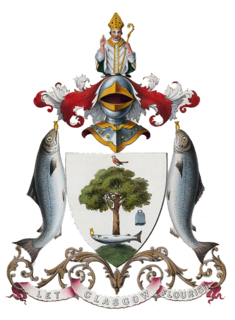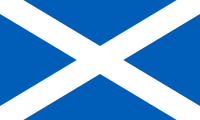
Glasgow City Council, the local government body of the city of Glasgow, Scotland, became one of the newly created single tier local authorities in 1996, under the Local Government etc. (Scotland) Act 1994, with boundaries somewhat different from those of the City of Glasgow district of the Strathclyde region: parts of the Cambuslang and Halfway and Rutherglen and Fernhill areas were transferred from the city area to the new South Lanarkshire council area.

Territorial authorities are the second tier of local government in New Zealand, below regional councils. There are 67 territorial authorities: 13 city councils, 53 district councils and the Chatham Islands Council. District councils serve a combination of rural and urban communities, while city councils administer the larger urban areas. Five territorial authorities also perform the functions of a regional council and thus are unitary authorities. The Chatham Islands Council is a sui generis territorial authority that is similar to a unitary authority.

The Local Government etc. (Scotland) Act 1994 is an Act of the Parliament of the United Kingdom which created the current local government structure of 32 unitary authorities covering the whole of Scotland.

Referendums in the United Kingdom are occasionally held at a national, regional or local level. National referendums can be permitted by an Act of Parliament and regulated through the Political Parties, Elections and Referendums Act 2000, but they are by tradition extremely rare due to the principle of parliamentary sovereignty meaning that they cannot be constitutionally binding on either the Government or Parliament, although they usually have a persuasive political effect.

The Strathclyde Partnership for Transport (SPT) is a passenger transport executive responsible for planning and coordinating regional transport, especially the public transport system, in the Strathclyde area of western Scotland. This includes responsibility for operating Glasgow's Subway, the third oldest in the world.
A county council is the elected administrative body governing an area known as a county. This term has slightly different meanings in different countries.
In the United Kingdom, passenger transport executives (PTEs) are local government bodies which are responsible for public transport within large urban areas. They are accountable to bodies called integrated transport authorities (ITAs), or where they have been formed, to combined authorities. The PTEs joined together to form the Passenger Transport Executive Group (PTEG) of which Strathclyde Partnership for Transport and Transport for London were both associate members. In 2016 it became the Urban Transport Group.

British Rail was the brand image of the nationalised railway owner and operator in Great Britain, the British Railways Board, used from 1965 until its breakup and sell-off from 1993 onwards.
Dŵr Cymru Welsh Water (DCWW) is a not-for-profit company which supplies drinking water and wastewater services to most of Wales and parts of western England.

The history of fire brigades in the United Kingdom charts the development of Fire services in the United Kingdom from the creation of the United Kingdom to the present day.
The Passenger Transport Executive (PTE) bus operations were the bus operating divisions of the passenger transport executives in the United Kingdom. In 1986 they underwent a process of deregulation and privatisation, forming some of the largest private bus companies in the UK outside London, with all being sold to their employees or management. Despite their relative size and lucrative operating areas, none of the companies survived beyond the late 1990s, with all falling into the hands of the major bus groups, who had their origins in privatised regional subsidiaries of the former National Bus Company and the Scottish Bus Group.

The water privatisation in England and Wales involved the transfer of the provision of water and wastewater services in England and Wales from the state to the private sector in 1989, through the sale of the ten Regional Water Authorities (RWA). The potable water supply as well as the sewerage and sewage disposal functions of each RWA were transferred to privately owned companies.
Public water supply and sanitation in Scotland is characterised by universal access and generally good service quality. Water and sewerage services are provided by a single public company, Scottish Water. The economic water industry regulator is the Water Industry Commission for Scotland. It "promotes the interests of water and sewerage customers in Scotland by making sure that householders and businesses receive a high-quality service and value for money by setting prices, monitoring Scottish Water's performance and facilitating competition in the water industry". The environmental regulator is the Scottish Environment Protection Agency. Drinking water standards and wastewater discharge standards are determined by the EU.
Public water supply and sanitation in England and Wales has been characterised by universal access and generally good service quality. Salient features of the sector in the United Kingdom compared to other developed countries is the full privatisation of service provision and the pioneering of independent economic regulation in the sector in Europe. There has been a substantial increase in real tariffs between 1989 and 2005, whilst independent assessments place the cost of water provision in the UK as higher than most other major countries in the EU. The government body responsible for water regulation, together with the water companies, have claimed improvements in service quality during the same period.
Regional water authorities came into existence in England and Wales in April 1974, as a result of the passing of the Water Act 1973. This brought together in ten regional units a diverse range of bodies involved in water treatment and supply, sewage disposal, land drainage, river pollution and fisheries. They lasted until 1995, when the water industry was privatised and the water supply and sewerage and sewage disposal parts became companies and the regulatory arm formed the National Rivers Authority. Regional Water Authorities were also part of the Scottish water industry when three bodies covering the North, West and East of Scotland were created in 1996, to take over responsibilities for water supply and sewage treatment from the Regional Councils, but they only lasted until 2002, when they were replaced by the publicly-owned Scottish Water.
Events from the year 1994 in Scotland.

The Water Act 1989 is an Act of the Parliament of the United Kingdom that reorganised the bodies responsible for all aspects of water within England and Wales. Whereas previous legislation, particularly the Water Act 1973, had focused on providing a single unifying body with responsibility for all water-related function within a river basin or series of river basins, this legislation divided those functions up again, with water supply, sewerage and sewage disposal being controlled by private companies, and the river management, land drainage and pollution functions becoming the responsibility of the National Rivers Authority.
Alan Alexander is a Scottish academic, writer and public servant. He was General Secretary of the Royal Society of Edinburgh 2013 -2018.

The Water (Scotland) Act 1967 is an Act of the Parliament of the United Kingdom that reorganised the water supply industry in Scotland, by creating Regional Water Boards to manage the treatment and supply of water to consumers, and a Central Scotland Water Development Board, which was responsible for developing new sources of water, and supplying that water to the Regional Water Boards in bulk.













